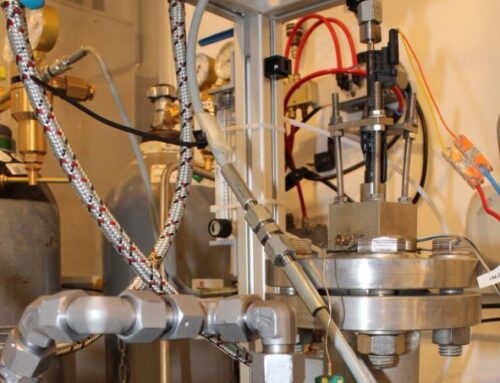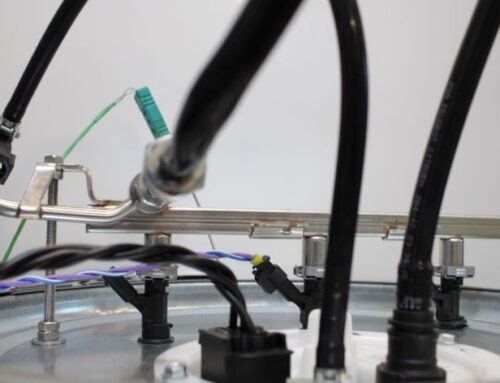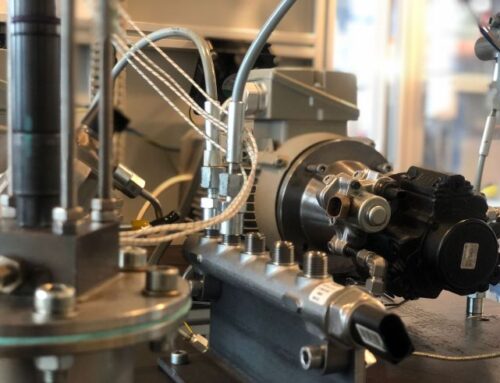Recommendable for vehicle technology, harmless for health and environment
28 February 2022 –
In long-term use, “premium additives” in fuels have a positive effect on engine function and can thus have a positive effect on emission behavior. According to current knowledge, the use of additives does not pose any significant risk to the environment or health. This is the conclusion of a study conducted by TEC4FUELS GmbH, ERC Additiv GmbH and Argomotive GmbH on behalf of the German Federal Ministry for the Environment, Nature Conservation, Nuclear Safety and Consumer Protection.
Dosed in low concentrations, chemical additives are intended to give a product properties that are considered necessary or useful for regulatory, ecological or application technology reasons. There is currently no fuel that could fully meet all normative and legal requirements without the use of additives. Therefore, all refineries use additives to ensure compliance with standards in their product streams. Over the years, the use of “premium additives” in addition to these so-called “refinery additives” has led to a variety of products that is constantly expanding as a result of ongoing adaptation to environmental and technical developments. With the further development of engine technology and changes in fuel composition, for example through the blending of alternative fuels such as biodiesel, ethanol, hydrogenated vegetable oil (HVO) or Power-to-Liquid-(PtL) fuels, new additive categories are also regularly added.
No significant negative effects
On the one hand, the study tested fuel additives application-wise for at least some of the statements made in the report using measurements on a reference engine. On the other hand, it looked at additives in terms of their effect on emissions, exhaust aftertreatment systems, the environment and health. One of the key findings is that, according to the current state of knowledge, fuel additives have no or no significant negative effects on exhaust emissions from vehicles on the road or their exhaust aftertreatment systems. In addition, the reaction products present in the exhaust gas of the additive classes considered in the study do not endanger health or the environment during complete engine combustion, as they are only formed in very low concentrations.
The study considers and evaluates separately the “pre-sales market” for additives that are already included in the fuel at the time of sale, and the “after-sales market” for additives that consumers can buy at retail and add to the fuel themselves. Additives available in the after-sales market are similar in their ecotoxicological properties and impacts to those of additives in the pre-sales market. A clear, negative impact on the environment or health could not be identified for any of the additives.
The study is available on the website of the German Federal Environment Agency at the following link (in German only): https://www.umweltbundesamt.de/publikationen/auswirkungen-von-additiven-fuer-kraftstoffe-auf





